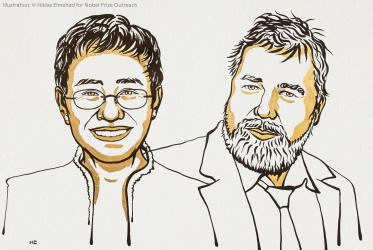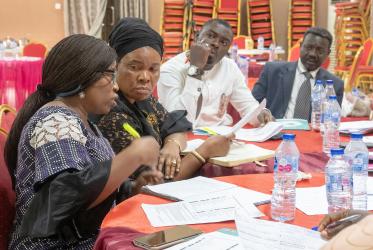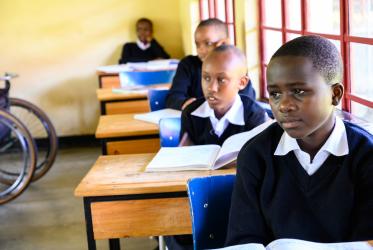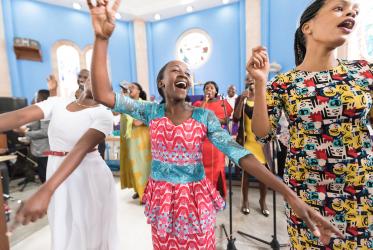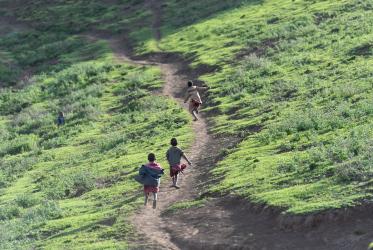Displaying 1 - 20 of 108
09 February 2024
WCC congratulates 2021 Nobel Peace Prize laureates
14 October 2021
Le COE félicite les récipiendaires du prix Nobel de la paix 2021
11 October 2021
New student body at Bossey Ecumenical Institute “a source of joy”
14 September 2020
Mission and people with disabilities
26 June 2019
How will the Arusha Call change the world?
20 May 2019
Comment l’Appel d’Arusha changera-t-il le monde?
20 May 2019


